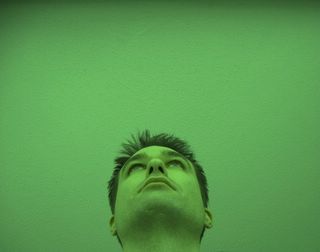
© noqontrol "Lady of the Lake"
From his custodial job at the clinic, Delpy had stolen the files on Gellie. Though many of the test results remained untranslatable to a non-psychiatrist, others gave a general picture of the woman who had transfixed him with her stare.
He snuck the files into his apartment building, tucked in a bag and stuffed under his arm, as though the neighbors watched through binoculars, or surveillance systems observed him from unmarked vehicles in the street. Somebody is always watching, he knew. But do they know what they really see?
Once inside his home, he placed the files on the table scattered with photos of Gellie. Some were clipped from school yearbooks from when she was a child, others were from vacation photographs, family reunions, driver’s licenses, corporate ids. You could see it even then, he thought; if you peered closely enough into her eyes you could see a vacancy and a disillusionment that would eventually take hold.
Even amongst all of this investigative information sprawled at his feet and on the table, he knew little of who was and is Gellie. Gellie was different from who Gellie is. And she was and is different from who she will be. It didn’t matter from how many angles you viewed a subject, you could not really gain the perspective necessary to know somebody. It was like walking 360 degrees around a sculpture to try and discern what is in its middle. Is it only marble? Can you know for sure, without breaking it open?
Delpy was not a sociopath or a stalker or disgruntled ex. He was one who easily fell in love with women he didn’t know, became obsessed with ideas that fell seemingly from nowhere into his thoughts. He collected things; newspaper clippings, scraps of garbage, lint taken from dryers immediately after somebody left with their laundry; these he stored in Ziploc bags labeled with names he suspected might be their’s.
His favorite part of collecting things was to take the most ordinary and insignificant items into the isolation of his room so that he could concentrate and study them time and time again. Repetition led to illumination. Penetration beyond the ordinary. How many layers can we penetrate into the labyrinth, he wondered? It was like peeling back layers of an onion. Each brought a fresh bout of tears. The center emitted the strongest waves of repulsion, an assault on the eyes and the nose. Delpy slid off his chair to the floor. Hardwood planks, wood grain beneath fingertips, nail heads driven into creaky boards protruding ever so slightly. His fingernail picked at the nail heads as though they could be peeled away like scabs. He heard muffled voices below. A family of four, two children; one an infant that cried at night, the other a four year old that smiled at him on the stairwell. With his ear pressed up against the floor he could detect sounds from throughout the building, not just those from below. Toilets flushed, dishes clattered. The only voices clear enough to be heard were those of laughter or shouting. He heard even his own breathing, but he couldn’t tell if it was carried throughout the structure of the building or only from within his own body. He doubted his presence was substantial enough to be transmitted through the foundations of the building, like everybody else’s. That was okay; he didn’t want to be noticed.
He fell asleep on the floor and woke up with light coming through the window. He cursed himself for not sleeping in his bed; what kind of person sleeps on the floor? He heard this voice not like the faint sounds of his neighbors, but the loud declarative voice of his Grandmother. The voice of his Grandmother was heard in all of the complaints and criticism of who he has been and who he is, but never of who he will be. When he hears assurances of who he will be, it is in the voice of his mother who he had been too young to remember. A voice soft and blurry like photographs clipped from newspapers and handled too often. Who he will be is tied directly to Gellie, he believes, and it will resound with the heroism of ballads, the gallantry of epic poems, the sculptures unearthed from ruins with missing arms or legs but still celebrated for what remains. She needed to be rescued like the maiden locked in her tower, and in return she would free him like the prince transformed from the body of a frog. Only then would the voice of his Grandmother be locked away as though in a room in his building, and he would only hear her when he pressed his ear against the floorboards.

No comments:
Post a Comment